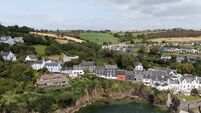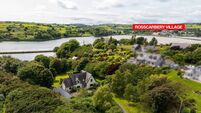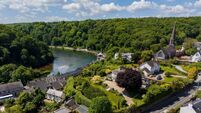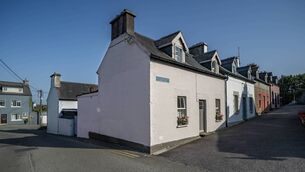Sat, 03 Jul, 2004 - 01:00
THE CELTIC Tiger hasn't gone away, you know it has just gone on safari.
Just over a decade ago, most Irish people wouldn't buy an orange from South Africa.
Already a subscriber? Sign in
You have reached your article limit.
Subscribe to access all of the Irish Examiner.
Annual €130 €80
Best value
Monthly €12€6 / month
Introductory offers for new customers. Annual billed once for first year. Renews at €130. Monthly initial discount (first 3 months) billed monthly, then €12 a month. Ts&Cs apply.
CONNECT WITH US TODAY
Be the first to know the latest news and updates
CourtsPlace: South AfricaPlace: Celtic TigerPlace: UKPlace: SpainPlace: Eastern EuropePlace: Cape TownPlace: Mandela Rhodes PlacePlace: Dublin's Temple BarPlace: Table MountainPlace: Cork'sPlace: South MallPlace: DublinPlace: Grafton StreetPlace: Cork's St Patrick's StreetPlace: CorkPlace: IrelandPlace: Mandela Rhodes Place developmentPerson: Tommy BarkerPerson: Greg CoughlanPerson: Frank GormleyPerson: David ColemanPerson: Cormac MagannetyPerson: Kadar AsmalEvent: Ireland-South Africa rugby testOrganisation: Howard HoldingsOrganisation: Eurocape InvestmentsOrganisation: EurocapeOrganisation: AIBOrganisation: SofitelOrganisation: HowardOrganisation: ANC













